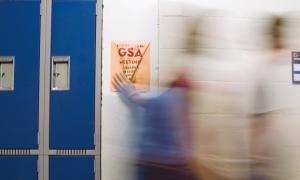article
Today’s Vocabulary Word is “Vitriol”
A year ago, we introduced a new curriculum, Civil Discourse in the Classroom and Beyond, citing the “pressing need to change the tenor of public debate from shouts and slurs to something more reasoned.” This weekend’s carnage in Tucson, with Congresswoman Gabrielle Giffords gravely injured, six people dead and 14 others wounded, is a terrible tragedy, not just for the victims and their families. It is a tragedy for a nation whose political process depends on people airing issues, managing conflict and confronting controversy in the public square.
